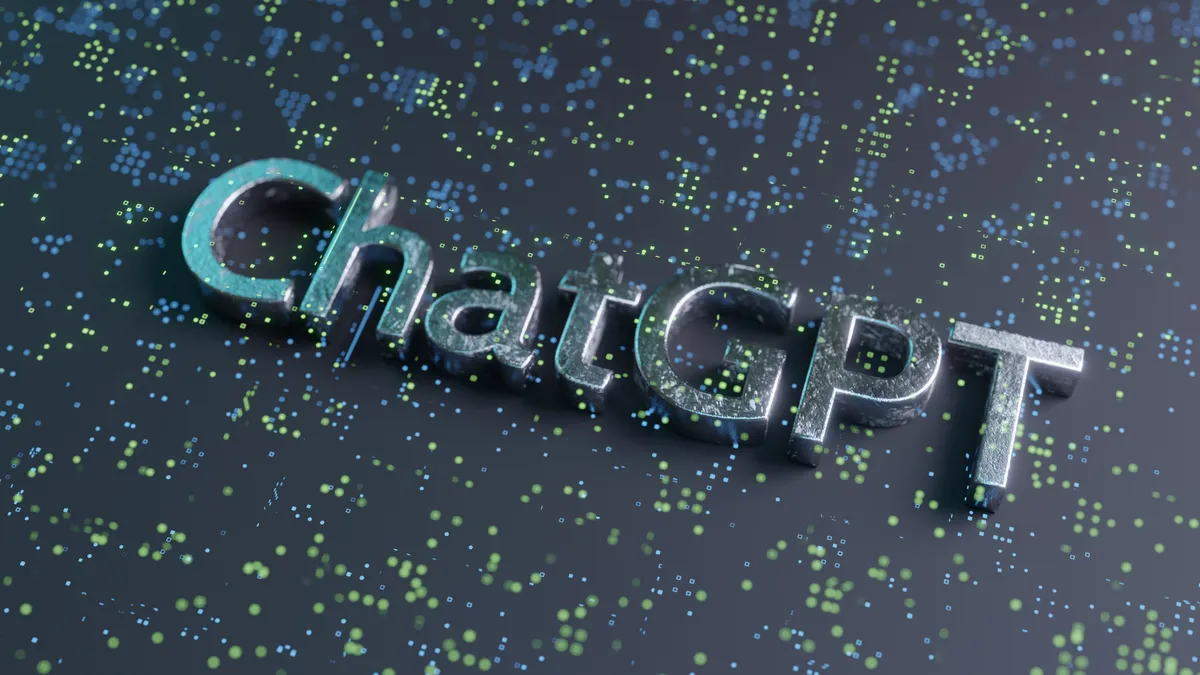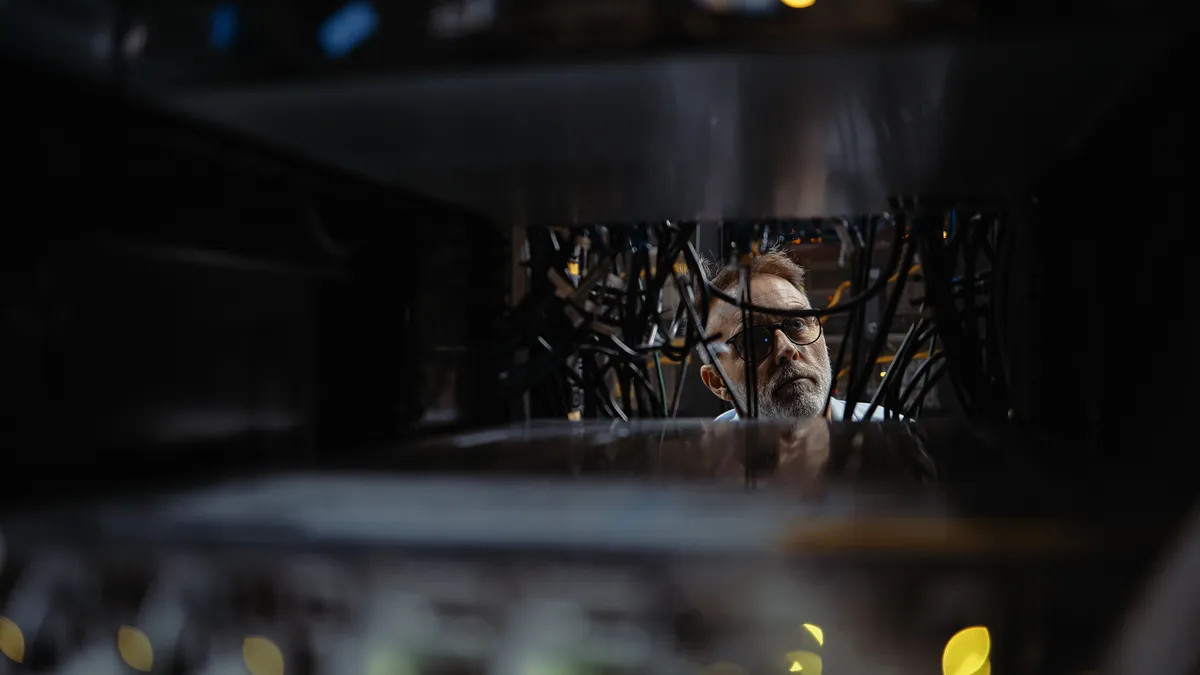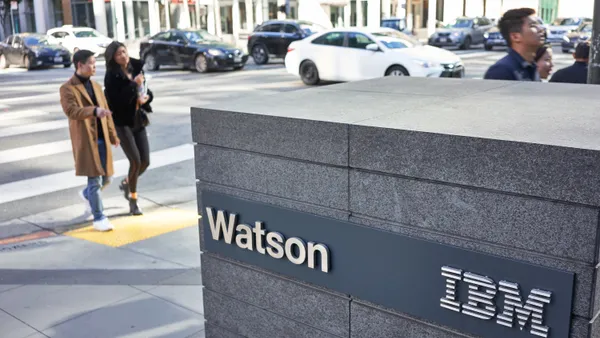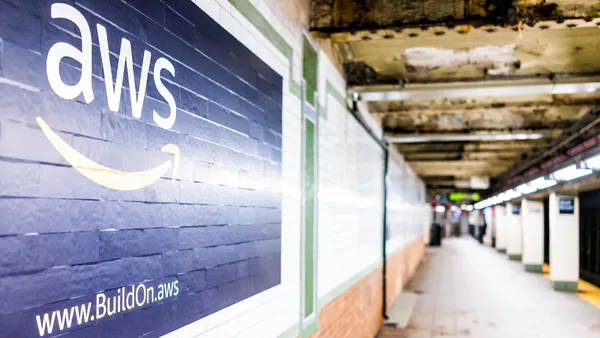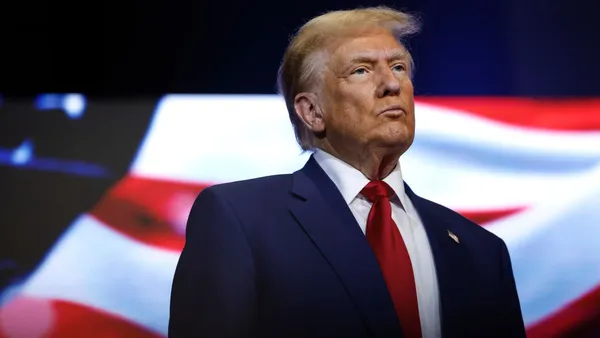OpenAI is piloting a premium version of its service that will be free of throttling, blackout windows and have at least double the regular daily message limit, according to a Jan. 9 post on Discord. The company did not respond to CIO Dive’s requests for comment.
“Our goal is to continue improving and maintaining the service, and monetization is one way we’re considering to ensure its long-term viability,” the post said. Attached to the message was a survey to sign up for a waitlist to access the new service, named ChatGPT Professional.
With the amount of fanfare surrounding ChatGPT's capabilities and implications for businesses, analysts expect companies to take interest in a premium version of the service.
“We know that it’s one of the best, if not the best conversational AI solutions out there,” Jeremy Roberts, workshop director at Info-Tech Research Group, said in an email. “ChatGPT or a similar solution could replace the much less sophisticated enterprise chatbots that serve customers of major banks, telcos and other customer-facing businesses.”
On Monday, reports circulated that Microsoft considered investing $10 billion into ChatGPT owner OpenAI, a move that would propel the company's valuation to around $29 billion, according to Semafor. Other outlets reported Microsoft’s plans to integrate ChatGPT capabilities with its search engine, Bing. Microsoft declined to comment, but the company previously backed OpenAI with a $1 billion investment in 2019.
Other businesses have shown interest in leveraging the tool’s capabilities. Actor Ryan Reynolds, part-owner of mobile virtual network operator Mint Mobile, tweeted a promotional video in which ChatGPT wrote the script of the advertisement.
You knew it was just a matter of time until we did this (extend the @MintMobile savings with @OpenAI, that is). pic.twitter.com/uf2jblpG2j
— Ryan Reynolds (@VancityReynolds) January 10, 2023
Turning hype into profit
The task for OpenAI is to turn the hype surrounding ChatGPT into steady revenue.
In a tweet last month, OpenAI CEO Sam Altman estimated the average cost per chat to be in the single-digit-cent range. While mere pennies at first glance, costs can balloon over time.
The sticker shock related to using large language models and natural language processing tools could make a premium version of ChatGPT a solution for enterprises, though OpenAI has not yet indicated how much a premium version would cost.
“Even those considered ‘regular’ sized language models — such as BERT — are still too expensive to deploy into production for many use cases,” Pieter Luitjens, co-founder and CTO at Private AI, said in an email. “For this reason, many companies still use older technologies such as GloVe embeddings.”
BERT, an acronym for bidirectional encoder representations from transformers, is a method of pre-training language models built by Google. BERT is first trained on a large source of text and then applied to other natural language processing tasks, according to a Google blog post.
“I imagine whoever ends up controlling ChatGPT would be interested in partnering with other software providers to expand its capabilities,” Roberts said. “The first version of this we are likely to see is a feature bundled in with a product.”
In its current state, ChatGPT users are subject to chat limits and occasional messages to check back later due to high demand. On Tuesday, ChatGPT users experienced outages, making previous conversations unavailable even after the issues were resolved, according to a post on Discord.
As OpenAI continues to iterate and update ChatGPT, Forrester Analyst Rowan Curran is interested to see the productized approach to the current application-style interface.
For businesses, using ChatGPT’s capabilities could become vital to enterprise oriented tasks, such as data cleaning and data preparation, however it would need to more closely mimic a blank page where users could build a chat interface, like a platform, Curran said.



